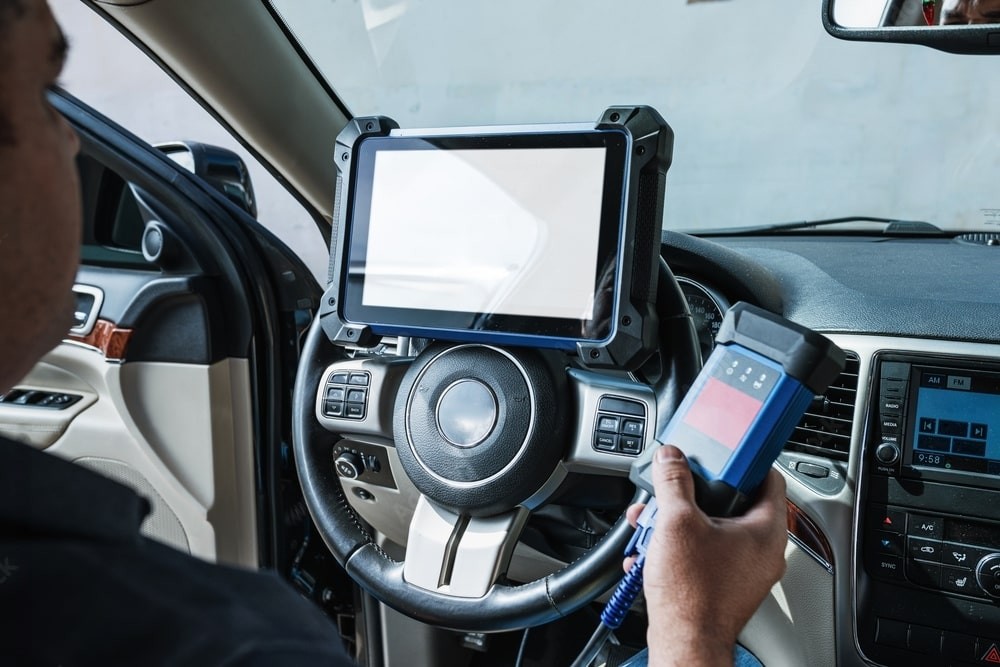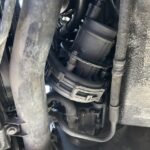Modern vehicles rely heavily on sophisticated electronic control units (ECUs), often referred to as car computers, to manage everything from engine performance to safety features. As a car owner, you might be curious about “How To Program A Car Computer,” especially when facing performance issues or considering upgrades. While the idea of DIY car computer programming might seem appealing, it’s crucial to understand the complexities and potential risks involved.
 Automotive ECU Programming and Diagnostics
Automotive ECU Programming and Diagnostics
Understanding how to approach car computer programming correctly is essential to avoid costly mistakes and ensure your vehicle operates safely and efficiently. Let’s explore the different facets of car computer programming and the best practices to follow.
Checking Your Owner’s Manual for Basic Resets
Before diving into complex programming procedures, always start with your car’s owner’s manual. Manufacturers often include instructions for basic system resets that can be performed without specialized tools. These resets might address minor glitches or allow you to restore certain settings to their defaults. The owner’s manual is your first point of reference for simple troubleshooting and adjustments.
The Battery Disconnect Method: A Limited Reset Option
One commonly mentioned method for a basic computer reset is disconnecting the car’s battery. This action can sometimes reset certain electronic systems by cutting off power temporarily. However, it’s important to understand that battery disconnection is not a comprehensive programming solution. It might clear some temporary memory and settings, but it won’t reprogram the ECU or address deeper software issues. Furthermore, disconnecting the battery can sometimes lead to the loss of personalized settings, such as radio presets and seat positions.
Seeking Professional Car Computer Programming Services
For any significant car computer programming needs, consulting a professional automotive service center or dealership is strongly recommended. These facilities have invested in specialized diagnostic tools and software provided by car manufacturers and reputable third-party companies. Their technicians possess the expertise and training to accurately diagnose and reprogram your car’s computer systems safely and effectively. Whether you need to update software, address performance problems, or integrate new components, professionals are equipped to handle these tasks.
Contacting the car manufacturer directly can also be a valuable step, especially for specific programming inquiries or complex issues. They can provide guidance on authorized service centers and ensure that any programming work is carried out according to factory standards and with genuine software.
Avoiding DIY ECU Tuning: Risks and Considerations
While the internet offers numerous guides and videos on DIY ECU tuning for performance enhancement, it’s crucial to approach these resources with extreme caution. Modifying your car’s ECU without the proper knowledge, tools, and software carries significant risks. Attempting to reprogram critical engine management systems incorrectly can lead to severe engine damage, compromised safety features, and potential legal issues related to emissions and vehicle compliance. ECU tuning is a complex field that demands in-depth understanding of automotive engineering and software. It should only be entrusted to qualified professionals who specialize in performance tuning and have a proven track record.
Prioritizing safety and adhering to manufacturer guidelines is paramount when dealing with your car’s electronic systems. Unauthorized or ill-informed attempts to reprogram a car computer can have serious and costly repercussions. For reliable and safe car computer programming, always seek the assistance of qualified and experienced automotive professionals.
